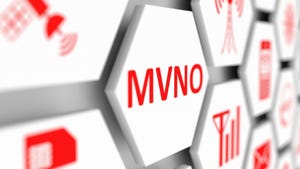Vodafone and Telefonica make Joyn support a key criterion, but OEMs coy
Mobile operators are communicating to their OEMs that support for RCSe/Joyn is now a key criterion for their devices to be included in the operators’ portfolios, though it is not yet mandatory. Telefonica has said that if a device does not support RCS/Joyn, it will not be dropped from their handset portfolio. But Vodafone is taking a tougher stance, saying that devices that do not support RCS/Joyn will find it tough to get into the operator’s handset portfolio.
April 16, 2012

By Pamela Clark-Dickson
Mobile operators are communicating to their OEMs that support for RCSe/Joyn is now a key criterion for their devices to be included in the operators’ portfolios, though it is not yet mandatory. Telefonica has said that if a device does not support RCS/Joyn, it will not be dropped from their handset portfolio. But Vodafone is taking a tougher stance, saying that devices that do not support RCS/Joyn will find it tough to get into the operator’s handset portfolio.
Even so, it could still take two to three years before all of the devices available in a market where there is already a high penetration of smart-phones and where all of the mobile operators have launched RCSe/Joyn, are RCSe/Joyn-capable, according to Attilio Zani, business development director for the GSM Association, during his presentation in a recent GSMA webinar.
But device manufacturers are yet to reveal their plans for officially launching RCSe/Joyn-enabled devices. This is despite the fact that nine of the top ten OEMs by global sales have officially stated their commitment to enabling RCSe/Joyn in their handsets; Research in Motion was the most recent to do so, at Mobile World Congress 2012 in February (although the company is believed to have been involved with the GSMA’s Rich Communications Suite (RCS) initiative almost from the beginning).
Apple is the only device manufacturer in the top ten that has not indicated that it will participate in RCSe/Joyn; Kobus Smit, head of next-generation communications, voice and messaging at Deutsche Telekom, and chair of the RCS project, told delegates at the GSMA’s MWC RCS seminar that because Joyn is intended to be a core communications service, Apple’s non-participation may well become a cause of dissatisfaction for iPhone users. Informa understands that the GSMA’s discussions with Apple are ongoing; meanwhile, the industry body has appointed WIT Software as its official provider of a Joyn application for Android and iOS.
However, based on recent comments made by the representatives of the mobile operators, a number of the participating handset vendors are believed to be at an advanced stage with regards to integrating RCSe/Joyn into their devices. The OEMs – including HTC, Huawei, LG, Nokia, Samsung and Sony Ericsson – are likely on track to make such devices available by the time that Vodafone Germany launches its RCSe-based service in May. The Spanish operators are also planning to commercially launch Joyn services in the summer.
HTC in particular is believed to be at a very advanced stage; at MWC12 the vendor carried out demonstrations of Joyn services using its Android devices. Huawei, LG, Nokia, and ZTE were also demonstrating RCSe/Joyn-enabled devices at MWC12.
It is not compulsory for OEMs, infrastructure vendors or operators to use the Joyn service mark or brand in their devices, equipment and services. However, the GSMA expects that most OEMS, vendors and operators will use the Joyn service mark and brand. OEMs will have to undertake an accreditation process in order to earn the right to use the service mark/brand on their devices. The process will involve successfully testing their device on a reference network and a second network. The GSMA expects that it will soon make available on its Joyn web site information about devices that have achieved accreditation; initially these are primarily expected to be smart-phones, with feature-phones to follow.
Device manufacturers will enable RCSe/Joyn on their devices in the following ways:
Natively embedding the service in new devices (likely feature-phones as well as smart-phones);
Where possible, enabling over-the-air updates to legacy devices; and
Working with operators/third parties to enable RCSe/Joyn as a downloadable application.
The RCSe/Joyn features that will be made available to subscribers via OEMs’ handsets will likely be dictated by the mobile operators, rather than the OEMs. Operators will likely all make the following features available at launch:
Contacts (capability discovery);
Chat; and
File and/or video share.
Operators will likely not launch initially with other Joyn features, such as video calling, search, geo-location push, central message store, multi-device capability, and video share during chat.
As such, there will be a few common Joyn features at launch, and the mobile operators (working with the OEMs) will later gradually roll out other features that they think may do well in their subscriber base.
Read more about:
DiscussionYou May Also Like








.png?width=300&auto=webp&quality=80&disable=upscale)


_1.jpg?width=300&auto=webp&quality=80&disable=upscale)